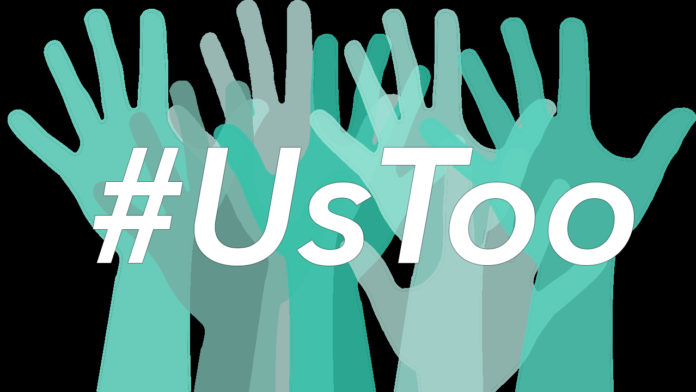#UsToo
You may have seen a common theme on social media last week. Thousands of women all over the world posted “Me too” on their various platforms to raise awareness of sexual harassment and assault.
The movement, which was started in 2006 by a woman named Tarana Burke, gained viral momentum when actress Alyssa Milano tweeted Oct. 15, “Suggested by a friend: If all the women who have been sexually harassed or assaulted wrote ‘Me too’ as a status, we might give people a sense of the magnitude of the problem.”
We are here to say: Us too. Members of this board have been sexually harassed and assaulted. Unfortunately, when you have more than five women in a room, more than likely at least one of them could say “Me too.”
Our timelines have been littered with posts stating, “Me too.” Some including more details and others with no explanation other than the two words – they didn’t need any explanation because people who saw the post knew.
We must remember that for every “Me too” there is a harasser or an assailant.
We must remember that not every victim shared their story. Another post that went viral last week said, “Remember, you only hear the stories we can bear to tell you.”
We have seen a response to the “Me too” movement. Although not prevalent enough, the response was “I have.”
Some men posted on their social media, “I have. If all of the men who have been complicit or guilty of sexual harassment or assault wrote ‘I have’ as their status, we might give people a sense of the magnitude of the problem.”
We are here to say, we have. Members of this board have witnessed sexual harassment and seen the signs of assault and have at times failed to take appropriate action. We must do better. We will be better. We need you to, too.
The “Me too” movement is compelling and we support empowering survivors in every and any way they choose to empower themselves, but victims of sexual harassment and sexual assault are not and have never been the problem. Therefore they cannot, nor should they be expected to solve the problem alone. We must step up and speak out against sexual assault, whether we join “Me too” or not.
We are also here to remind you that you shouldn’t need a hashtag to get a “sense of the magnitude of the problem.” You shouldn’t only care about the sexual assault epidemic once you see that people in your circle have been harassed and assaulted. Survivors do not owe you their stories and it is not their responsibility to educate you.
We are here to say that there is never a right or wrong time to talk about your story. Survivors should share whatever they want, whenever they want with whomever they want. There is no shame in keeping your trauma private until you are ready to talk. There is no shame in talking openly about your trauma. Every trauma is different and everyone heals differently.
Sexual assault is something that happens more than most people care to admit. More than likely there are people in your life who have been assaulted. There are also assailants in your life. Call out your friends, family, coworkers and acquaintances when you see them contribute to rape culture. If every woman we know has a story about being cat called, then everyone should have a story about witnessing a cat call. Don’t let harassment get played off as “boys will be boys” or a “compliment.” Stand up when it is taboo to be the lone voice of opposition. Speak up when it is uncomfortable.
There shouldn’t be this many me too’s, and we know that there are so many more.
#Ustoo.






